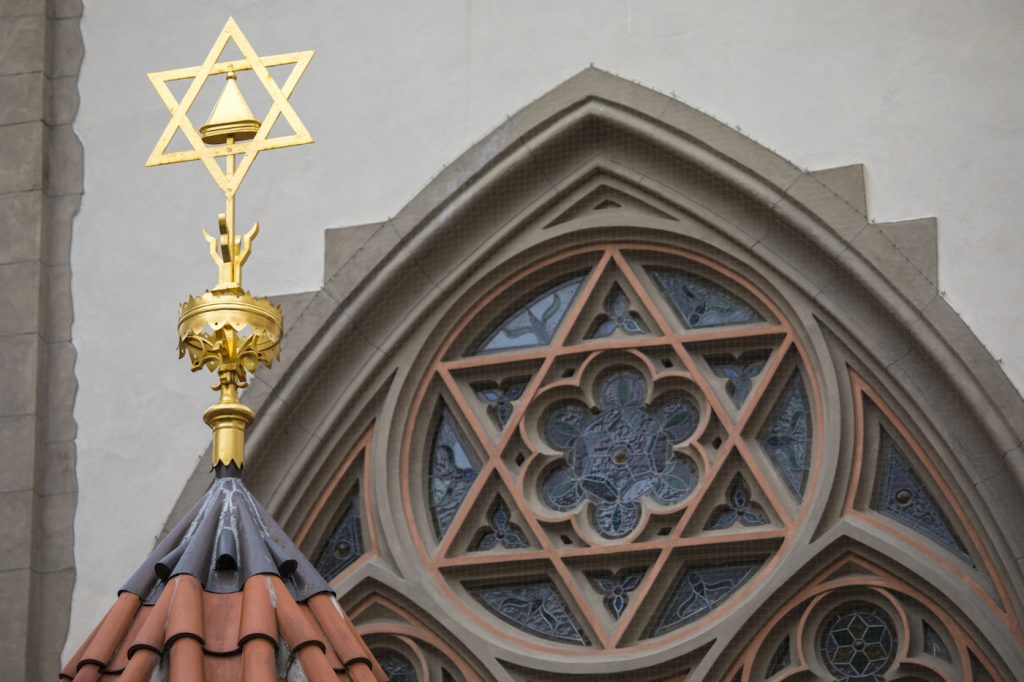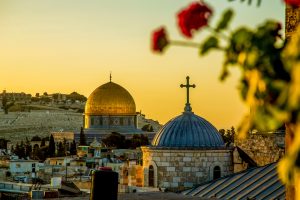
Shahzad Ahmed, UK
Just two years ago, a study revealed that the UK was ranked second highest out of 24 nations in being the most tolerant towards people of different religions. 82% of the public said that they trust people of a different religion. [1]
However, in the wake of the recent tragic and horrific attack on a synagogue in Manchester, on one of the holiest days in the Jewish faith, it is undoubtedly a stark reminder of the increasing division and intolerance that is emerging in our society as we are witnessing the unfortunate rise of antisemitism once again. Similarly, it was just last year that anti-Muslim hate surged to record levels as well.
The rich presence of churches, mosques, temples, shrines, and synagogues across the UK stands as a powerful testament to the nation’s long-standing legacy of religious diversity and tolerance. These sacred institutions are more than places of worship—they are the enduring pillars of our communities, offering support, solace, peace, and spiritual grounding in a society that is increasingly marked by division, materialism, and greed.
However, no religion has endorsed and exemplified this principle more profoundly than Islam and the example of its holy founder, Prophet Muhammad (sa). The historic Charter of Madinah was the first constitution of the Holy Prophet (sa) written 1400 years ago which established the principles for a harmonious society; promoting justice, equality, and above all, religious freedom and protection of all people of all faiths. Thus, synagogues, churches, temples and shrines are considered sacred in Islam. It is the duty of every Muslim to protect them all equally.
In fact, at a time, when there was merely a handful of Muslims, and in the face of severe persecution, they were ready to lay down their lives for this very principle of safeguarding religious freedom, which has been forever preserved in the form of a fundamental commandment of the Holy Qur’an:
‘Permission to fight is given to those against whom war is made, because they have been wronged — and Allah indeed has power to help them — Those who have been driven out from their homes unjustly only because they said, ‘Our Lord is Allah’ — And if Allah did not repel some men by means of others, there would surely have been pulled down cloisters and churches and synagogues and mosques, wherein the name of Allah is oft commemorated. And Allah will surely help one who helps Him. Allah is indeed Powerful, Mighty.’ [2]
Elaborating on this very fundamental principle of Islam, the Supreme Head of the Ahmadiyya Muslim Community, His Holiness, Hazrat Mirza Masroor Ahmad (aba), stated:
‘There are various religions in the world – there are Muslims, Christians and Jews – and we, who are true Muslims, firmly believe that all of the religions have been originally sent from God Almighty and we also firmly believe that the founders and prophets of every religion were truthful people. We believe in all the prophets and the holy founders of all religions from Prophet Adam (as) to the Holy Prophet Muhammad (sa) and this is the true teaching of Islam.
It has been written in a verse of the Holy Qur’an that if the hand of the oppressors was not stopped then no church, no synagogue, no temple and no mosque would have remained wherein the name of God would be oft commemorated and people would gather for the purpose of worship. Therefore, this is the true teaching of Islam on tolerance and living with others who share different religions and faiths.’
Thus, it is the duty of Muslims to not only respect and honour the places of worship of all faiths, but even to protect and safeguard them.
On one occasion whilst the Holy Prophet (sa) was sitting with his companions, a funeral procession passed by and he immediately stood up as a mark of respect. His companions, asked why he had done so—after all, the funeral was that of a Jew. The Holy Prophet (sa) simply replied: ‘Was he not a human being?’
This profound gesture of the Holy Prophet (sa) taught a timeless lesson: that every human life, regardless of race, religion, or background, deserves dignity and respect.
The early history of Islam, and the vast stretch of its entire empire is replete with such beautiful examples of fostering religious harmony and protecting the rights of all religions and its followers.
For example, following the conquest of Jerusalem, the Second Caliph of Islam, Hazrat Umar (ra) demonstrated deep respect and love for Jerusalem and the Jewish holy site. Upon entering the city, he found the area around Al-Aqsa Mosque desecrated and personally cleaned it with his own hands, recognizing its religious significance to the Jews.
Historical accounts show that Muslims, under Hazrat Umar’s (ra) leadership, were welcoming to Jews in Jerusalem. He allowed them to return, live near the Temple Mount, and restore their places of worship—marking a stark contrast to the previous persecution they had faced.
Even in the course of battles and wars, this fundamental principle was upheld at all times, as His Holiness, Hazrat Mirza Masroor Ahmad (aba) explains:
‘Islamic history bears witness to the fact that where such defensive wars did take place, the Holy Prophet of Islam (sa) laid down extremely strict rules of engagement to ensure that the Muslim armies perpetrated no cruelty. He specifically instructed that churches, synagogues, temples and all other places of worship were never to be targeted. Similarly, Muslims were not permitted to attack priests, rabbis or any religious leaders.’
The presence of synagogues and churches across the Muslim lands having stood during centuries of Muslim rule, is indeed a testament to this very teaching exemplified by the Holy Prophet (sa).
More recently – in just the neighbouring city of Bradford from where this heinous and tragic incident took place – another beautiful example of interfaith harmony was witnessed when the small Jewish community of the city was faced with the difficult proposition of selling its 132-year-old synagogue due to a lack of funds. The city’s synagogue was saved by the Muslims of the city when the secretary of the local nearby mosque led a fund-raising effort to not only secure the long-term future of the synagogue but also establish a strong connection between Bradfordian Muslims and its local Jewish community.
The Imam of the Dar-ul-Aman Mosque in Manchester, Muhammad Ahmad Khurshid, who has been serving in the local community for over a decade, expressed his utter shock at the recent incident and conveyed his deepest condolences to the local Jewish community.
‘As an Imam of the local Ahmadiyya Muslim Community, we are deeply shocked and saddened by this heinous act. “Dar-ul-Aman”, the mosque I serve in, literally means an abode of safety and peace. Thus, as Muslims it is our foremost duty to extend this protection and safety to all members of the local community, regardless of faith, race or religion.’
The founder of the Ahmadiyya Muslim Community, the Promised Messiah and Imam Mahdi, Hazrat Mirza Ghulam Ahmad (as) emphatically stressed upon respecting the whole of humankind, irrespective of race, religion or background. On one occasion, he stated,
‘The principle to which we adhere is that we have kindness at heart for the whole of mankind. If anyone sees the house of a Hindu neighbour on fire and does not come forward to help extinguish the fire, most truly I declare that he does not belong to me. If anyone of my followers, having seen someone attempting to murder a Christian does not endeavour to save him, I most truly declare that he does not belong to us.’ [3]
Thus, Islamic teachings unequivocally condemn all forms of violence and oppression, particularly those committed in the name of religion. In a truly just and harmonious society, every place of worship—be it a mosque, church, synagogue, temple, or shrine—must be protected, allowing its worshippers to practice their faith without fear or threat.
As we witness a troubling rise in hatred, division, and religious intolerance across the world, the responsibility on faith communities has never been greater. It is now more important than ever for people of all faiths to come together, to stand united in solidarity, and to collectively reject the voices of extremism and hatred that seek to divide us.
About the Author: Shahzad Ahmed serves as the Associate Editor of The Review of Religions, having graduated from Jamia Ahmadiyya UK – Institute of Modern Languages and Theology. He is also an Imam of the Ahmadiyya Muslim Community, has a Bachelor’s Degree in English Literature and presents shows on contemporary Islamic issues for MTA International.
ENDNOTES
[1] https://www.kcl.ac.uk/policy-institute/assets/lost-faith-the-uk’s-changing-attitudes-to-religion.pdf
[2] The Holy Qur’an, Ch. 22: 40-41
[3] https://files.alislam.cloud/pdf/Selected-Writings-Promised-Messiah.pdf




Add Comment